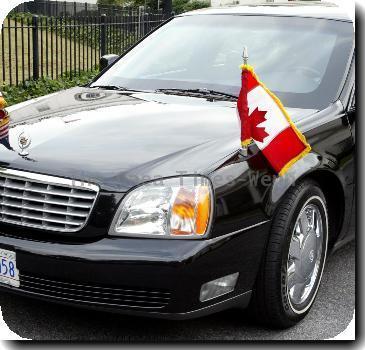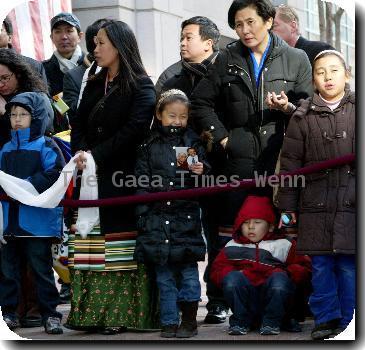Mirandizing the political conversation: Obama administration gains a little breathing room
By Pete Yost, APThursday, May 20, 2010
‘Modifying’ Miranda modifies the political debate
WASHINGTON — Hammered for months by Republicans as soft on terrorism, Attorney General Eric Holder and the rest of the Obama administration are suddenly playing offense, offering to work with Congress on a law that would let law enforcement delay constitutional Miranda warnings to terror suspects.
The shift would give investigators greater flexibility in the critical early phases of terror investigations. It also gives the administration some momentum while two other knotty terror-related dilemmas — where to try 9/11 suspects and where to relocate detainees from Guantanamo Bay — have faded as front-burner issues.
“Clearly, the administration’s actions fit the old adage that good policy is good politics,” said Chicago-based Democratic consultant Eric Adelstein, who is working on several congressional campaigns for the midterm elections. “They are being tough on terror and forcing Republicans to make a choice.”
What is less clear is how a change to the public safety exception in Miranda would work and how long it could delay providing the warnings. Miranda restricts using a suspect’s answers in his criminal trial if he has not first been notified of his right to remain silent and get a lawyer.
Federal officials will not talk about their options, but seasoned constitutional lawyers and former prosecutors suggest such a terrorism exception could last up to 48 hours — longer than a court-mandated public safety exception that already allows law enforcement to hold off Miranda warnings for a short period during emergencies to save lives.
While the public discourse on Miranda warnings has warmed up, the issues of the 9/11 trial and the president’s promise to close the military-run prison at Guantanamo Bay, Cuba, have done a slow fade — at least for now.
The three questions are “part of a big political puzzle,” said Syracuse University law professor William Banks, who specializes in national security law.
Politics always mixed in to the federal government’s fight against terrorism “but never close to the extent it does now,” says former federal prosecutor E. Lawrence Barcella.
“You have career intelligence and law enforcement professionals who are used to dealing with all of these issues every day versus politicians who deal with none of these issues except when they can score political points,” Barcella added.
Banks sees a range of possible approaches in any Miranda proposal that the Obama administration sends to Congress — for example, delaying for some reasonable period of time informing someone of the right to a lawyer and a right to remain silent, and possibly delaying delivering a suspect before a magistrate.
Another possible approach: authorizing emergency detention that would trump other legislation pertaining to the rights of the accused.
“I don’t think the Justice Department would propose an open-ended exception,” said Banks. He foresees a statutory presumption that “might delay Miranda for 24 or 48 hours, subject to renewal with some proof of the need before a judge.”
When the Supreme Court established the public safety exception to Miranda in 1984, they did so in a case of momentary questioning. It was a police officer asking a suspect where he’d stashed a gun in a supermarket.
What’s unclear now is “how far the exception extends,” says University of Texas law professor Robert Chesney.
After the May 3 arrest of Times Square bombing suspect Faisal Shahzad, investigators questioned him for three to four hours before they finally read him his rights, John Brennan, President Barack Obama’s top counterterrorism adviser, said recently.
It’s not clear that, even if Obama gets Congress to go along with a law, it would pass muster at the Supreme Court. In 2000, the Supreme Court struck down a law that said confessions can be admitted if they’re made voluntarily, regardless of whether Miranda rights had been read.
On terrorism-related questions of Guantanamo Bay and the 9/11 suspects, Michael J. Edney, former deputy legal adviser to the National Security Council under President George W. Bush, predicts “a simmer of inaction” for months to come.
The Obama administration “found that some of these difficult issues about the location and form of trials for the 9/11 attacks and moving Guantanamo detainees to the United States were far more politically contentious than they thought,” Edney says.
Talk of a Miranda exception has won favorable comments so far from a lone Republican, Sen. Lindsey Graham of South Carolina, who raised the possibility days before Holder brought up the issue for the administration.
Graham, who has been a key figure in administration efforts to close Guantanamo, said he was “very pleased generally with what I heard” from the attorney general on modifying the safety exception to Miranda. Graham added, “I’ve been advocating a long hard look at all of our laws regarding the threats we face.”
Graham said Miranda “has to be changed to accommodate the needs of the war on terror.”
But Graham “is a constituency of one on these issues,” said Christopher E. Anders, senior legislative counsel for the American Civil Liberties Union in Washington, one of the groups opposing a change in Miranda.
Graham spokesman Kevin Bishop said there are other Republicans who are very interested in expanding the public safety exception on Miranda warnings, but until they see some legislative text, “they won’t go further at this time.”
Tags: Barack Obama, Caribbean, Cuba, Latin America And Caribbean, North America, Political Issues, Terrorism, United States, Washington



